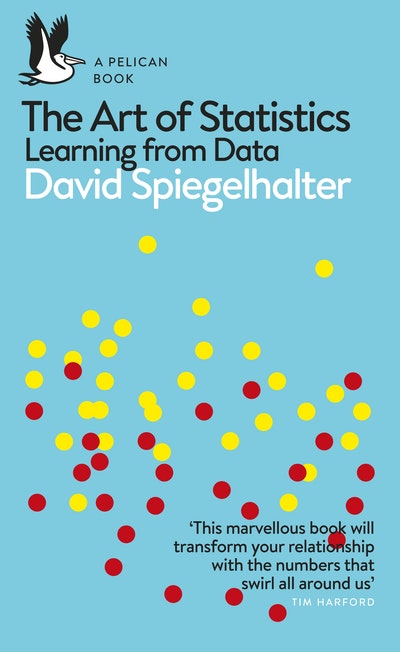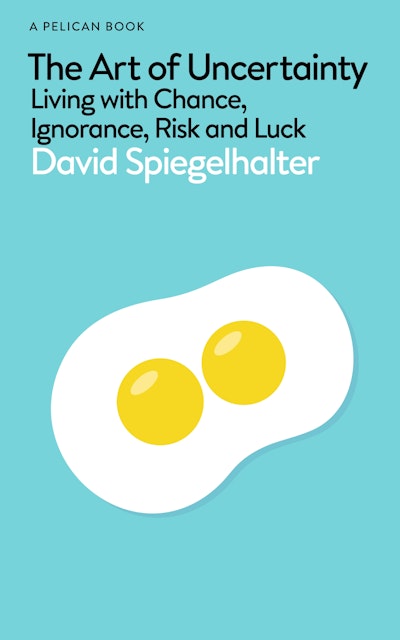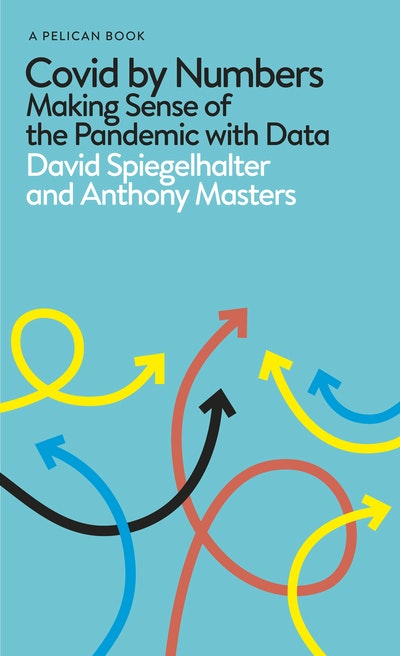- Published: 18 February 2020
- ISBN: 9780241258767
- Imprint: Penguin Press
- Format: Paperback
- Pages: 448
- RRP: $26.99
The Art of Statistics
Learning from Data
- Published: 18 February 2020
- ISBN: 9780241258767
- Imprint: Penguin Press
- Format: Paperback
- Pages: 448
- RRP: $26.99
David Spiegelhalter is probably the greatest living statistical communicator; more than that, he's one of the great communicators in any field. This marvellous book will transform your relationship with the numbers that swirl all around us. Read it and learn.
Tim Harford
This is an excellent book. Spiegelhalter is great at explaining difficult ideas . . . Yes, statistics can be difficult. But much less difficult if you read this book.
Evening Standard
Shines a light on how we can use the ever-growing deluge of data to improve our understanding of the world . . . The Art of Statistics will serve students well. And it will be a boon for journalists eager to use statistics responsibly - along with anyone who wants to approach research and its reportage with healthy scepticism.
Nature
Do you trust headlines telling you . . . that bacon, ham and sausages carry the same cancer risk as cigarettes? No, nor do I. That is why we need a book like this that explains how such implausible nonsense arises in the first place. Written by a master of the subject . . . this book tells us to examine our assumptions. Bravo.
Standpoint
Like the fictional investigator Sherlock Holmes, Spiegelhalter takes readers on a trail to challenge methodology and stats thrown at us by the media and others. But where other authors have attempted this and failed, he is inventive and clever in picking the right examples that spark the reader's interest to become active on their own.
Engineering and Technology
The Art of Statistics is in the great educational tradition of its publishing imprint, Pelican Books: an attempt to get everyone up to speed with the practical uses of statistics, without pages of terrifying equations or Greek letters. In a series of spry, airy chapters, he succeeds fabulously ... Lucid and readable. In an age of scientific clickbait, 'big data' and personalised medicine, this is a book that nearly everyone would benefit from reading.
Spectator
What David Spiegelhalter does here is provide a very thorough introductory grounding in statistics without making use of mathematical formulae. And it's remarkable. Spiegelhalter is warm and encouraging - it's a genuinely enjoyable read ... This book should be required reading for all politicians, journalists, medics and anyone who tries to influence people (or is influenced) by statistics. A tour de force.
Popular Science
There is something in here for everyone ... A call to arms for greater societal data literacy ... Spiegelhalter's work serves as a reminder that there are passionate, self-aware statisticians who can argue eloquently that their discipline is needed now more than ever.
Alan Smith, Financial Times
Important and comprehensive
Hannah Fry, New Yorker





